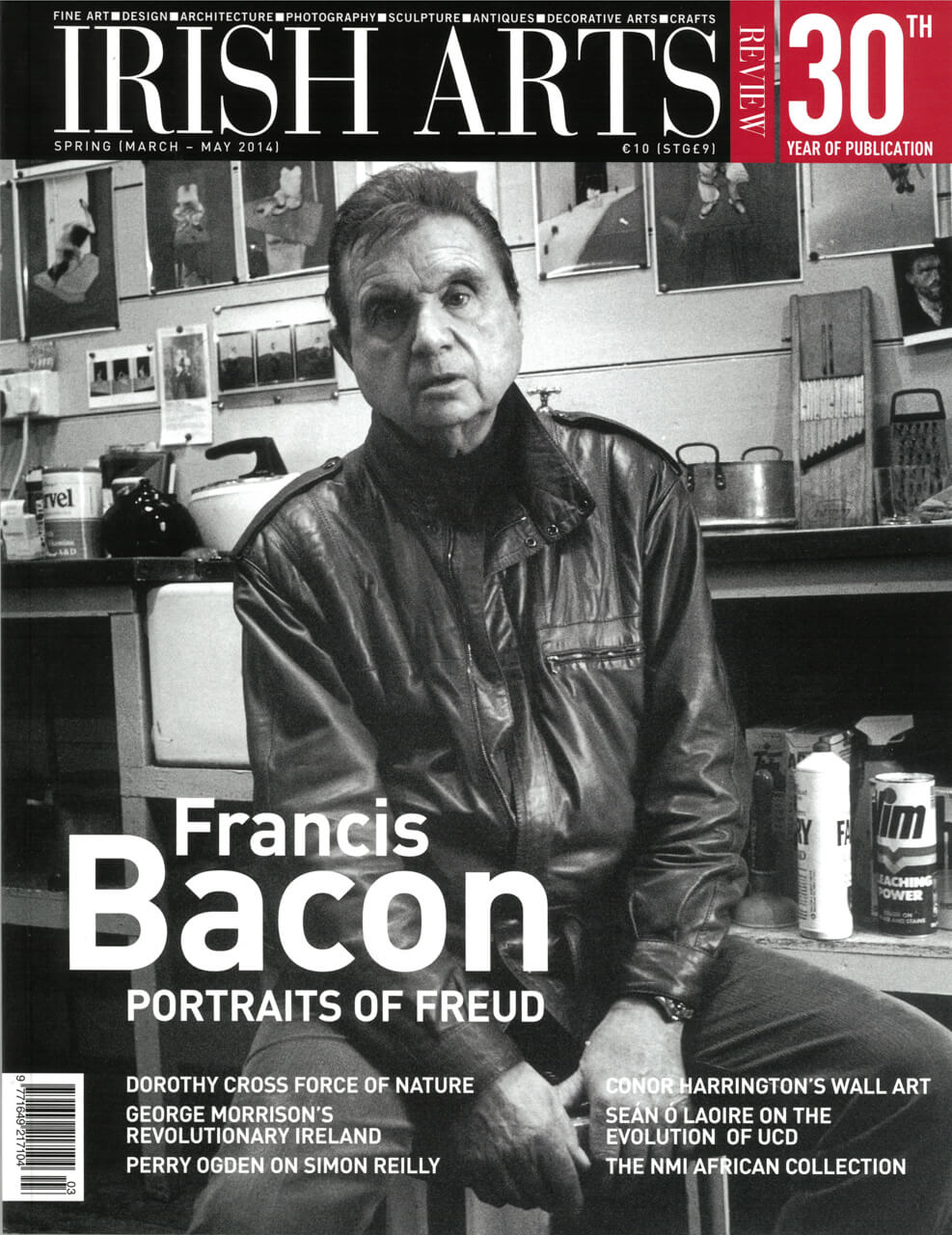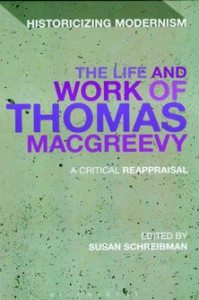

SUSAN SCHREIBMAN (ED)
Bloomsbury, 2013
pp 312 h/b £60.00
ISBN: 978-1-441140-92-0
Eoin O’Brien
At first glance this book could put you off. Veering as it does from academic high-talk on ‘Historicizing Modernism‚’ (an ‘emphasis based on the contested self-definitions of modernist writers, thinkers and critics [that] may in turn, prompt various reconsiderations of the boundaries delimiting the concept of ‘modernism‚’ itself‚’) to affectionate remembrances (‘much has been written about my uncle, but I am always glad that I knew the real Thomas MacGreevy‚’), this collection of essays does manage to evoke an engrossing curiosity as to how this Kerryman managed to influence some of the greatest intellectual figures of the first half of the 19th century, while also writing some remarkable (and highly regarded) poetry and art criticism as well as being an epistolary influence on those who he befriended. But be stoic in mood and press on – the rewards are considerable. Leave aside for the moment his espousal (and promotion) of Jack B Yeats, Poussin and Watteau in his capacity as an art critic, art historian and Director of the National Gallery of Ireland (from 1950 to 1963); accept that he was a poet in the true Modernist tradition, and turn instead to marvel at how so many intellectuals were drawn to this man for cultural and spiritual sustenance and you will read Sandra O’Connell’s Ghosts Matter chapter, not only with joy and enrichment, but as key perhaps, to the enigmatic persona that was MacGreevy. He not only influenced Irish artists and intellects, such as the Yeats brothers, James Joyce, (interestingly he also became close friends of their wives, George, Cottie and Nora Joyce), Samuel Beckett, Denis Devlin, Anthony Cronin, Roger McHugh, Niall Montgomery, Ernie O’Malley, Brian Coffey, George Reavy and Brian O’Doherty, but British artists were drawn to him also (Richard Aldington and T S Eliot being notable examples), and, perhaps most remarkably, he influenced the American poets, Babette Deutsch, Marianne Moore and Wallace Stevens, for whom he seems to have been a spiritual confirmation that they would have a greater existence when all would meet, as they believed they would, in a Dantesque ever after.
God, in MacGreevy’s canon, is the sublime artist to whom all artists must be subservient recognizing that ‘art is the most godlike of human activities‚’
I used the term enigmatic with purpose and in doing so can only wonder at what was a constant battle (though strangely I don’t think he saw it as such) between his intellectual reasoning (and those around him, such as Beckett) and his ardent belief that art (at least all good art) and God were inseparable, an attitude born not only from being an Irish Catholic but also, as Terence Killeen puts it, from ‘a febrile anti-Britishness and anti-Protestantism‚’ (let’s not forget that he fought in World War I). His society was to be one ‘in which the Church lives robustly‚’ and where ‘Catholic values ‚Ķdo not merely survive but flourish triumphantly‚’. And in fact God, in MacGreevy’s canon, is the sublime artist to whom all artists must be subservient recognizing that ‘art is the most godlike of human activities.‚’ How much did this millstone of ardent religiosity hamper his poetic and critical deliberations? It certainly left a lasting impression on Brian O’Doherty struggling to escape his Aesculapian shackles in exchange for a world of painting far from Ireland’s shores. ‘Young man you have work to do for Ireland and the Holy Mother‚’ said MacGreevy to the young artist who ‘couldn’t wait to leave Ireland‚’ and who was ‘on very poor terms with the Holy Mother‚’.
So despite the fact that this book is for the greater part an academic work that will be of greatest benefit to scholars of literary modernism, it should also have a wider appeal by offering sensitive insights that allow not only appreciation, but also an understanding, of a remarkably brilliant and complex Irish intellect. It should whet the appetite for Susan Schreibman’s definitive biography.
Eoin O’Brien is author of The Weight of Compassion & Other Essays, Lilliput Press 2013.



